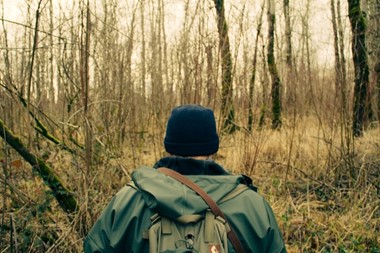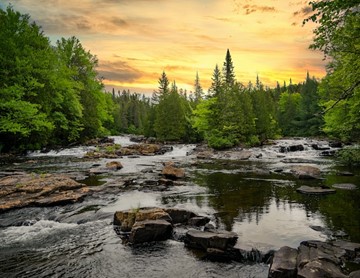In the realm of outdoor adventures, nature can be both a captivating playground and an unpredictable adversary. For every enthusiast who seeks the thrill of hiking through rugged terrain or embarking on backcountry excursions, mastering essential survival skills is not just a matter of prudence, but a testament to one’s respect for the wild.
Below, Richard Kane Mansir delves into the crucial survival skills that every outdoor enthusiast should cultivate. From fire-building techniques to navigation strategies, these fundamental abilities not only enhance safety but also foster a deeper connection with the natural world.
Important Survival Skills
These survival skills cover the basics of what every human needs: food, water, air, and shelter. If these aren’t covered, then survival is highly unlikely in an emergency situation.
Fire Building
Even when it’s hot during the day, it can get cold at night. Weather is fickle and if there’s no way of knowing what to expect – it’s important that a person knows how to stay warm or cool. Sure, there are jackets and layers, but being able to make a fire ensures that warmth will be available no matter what.
Fire can also scare off animals and provide a way to cook any food that’s around. In addition, it requires no extra equipment if the kindling and wood are in the area.
Potable Water
It’s been found that humans can survive weeks without food but can only survive two to four days without water. In the outdoors, potable (drinking) water may not be readily available, which is why it’s so important to be able to create some.
Foraging, Fishing, and Trapping
As mentioned in the previous section, humans can survive without food for a few weeks, but it’s still necessary. Foraging (searching for food in the wild), fishing, and trapping small creatures will provide sustenance, at least until a rescue party.
Basic First Aid
Injuries can happen anywhere but when it occurs in the outdoors, things can go downhill fast. Knowing basic first aid, such as CPR, controlling bleeding, treating burns, finding something to put on bites, and stabilizing limbs, is a key. There is often no signal, or hospitals are few and far between, so knowing basic first aid can be the difference between living or dying.
Finding and Making Shelter
Shelters aren’t necessarily as important as food and water, but if someone is in an area that has extreme weather, shelters are very important. A shelter will provide warmth, a covering from the sun, and even protection from animals.
When building the shelter, think about the terrain and the season. This’ll determine what kind of materials to use and how the shelter should be laid out (e.g. tent, tepee, cave shelter).

Weapons
Another survival skill that outdoor enthusiasts need is knowing how to make a weapon. Weapons allow people to protect themselves, find and hunt for food, and utilize the materials that are on hand.
Some common weapons that are useful and often made by outdoor enthusiasts include spears, and slingshots.
Tying Knots
Knots may not seem important, but they can make or break survival when it comes to setting up a shelter, making snares for animals, or building tools. Tight and good knots will ensure that things don’t fall apart.
Summary
In the wild, preparedness can mean the difference between an exhilarating adventure and a potentially perilous situation. These abilities serve as a compass, guiding us through the unpredictable terrain of nature. From fire-making to first aid, navigation to shelter-building, each skill equips us with the knowledge and confidence to face the challenges that may arise.
Remember, becoming proficient in these survival techniques not only ensures personal safety but also deepens our connection with the natural world. So, whether you’re a seasoned outdoorsman or a budding enthusiast, the mastery of these skills is a testament to your dedication to both adventure and responsible exploration. Embrace the wild with respect, and let your preparedness be the beacon that lights the way to unforgettable experiences in the great outdoors.

